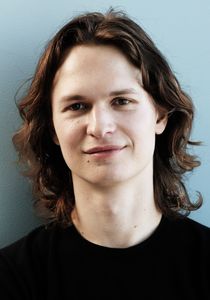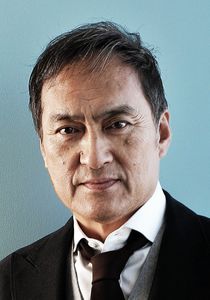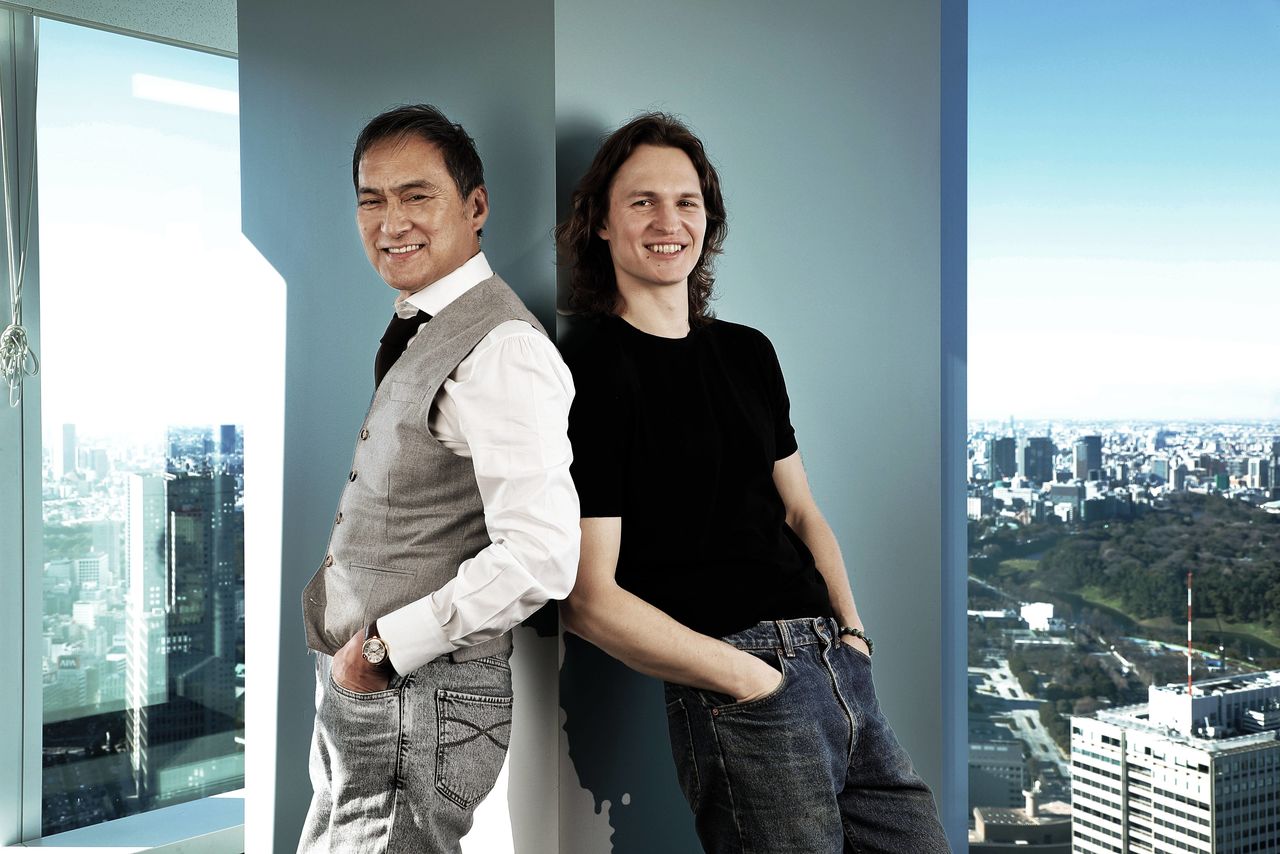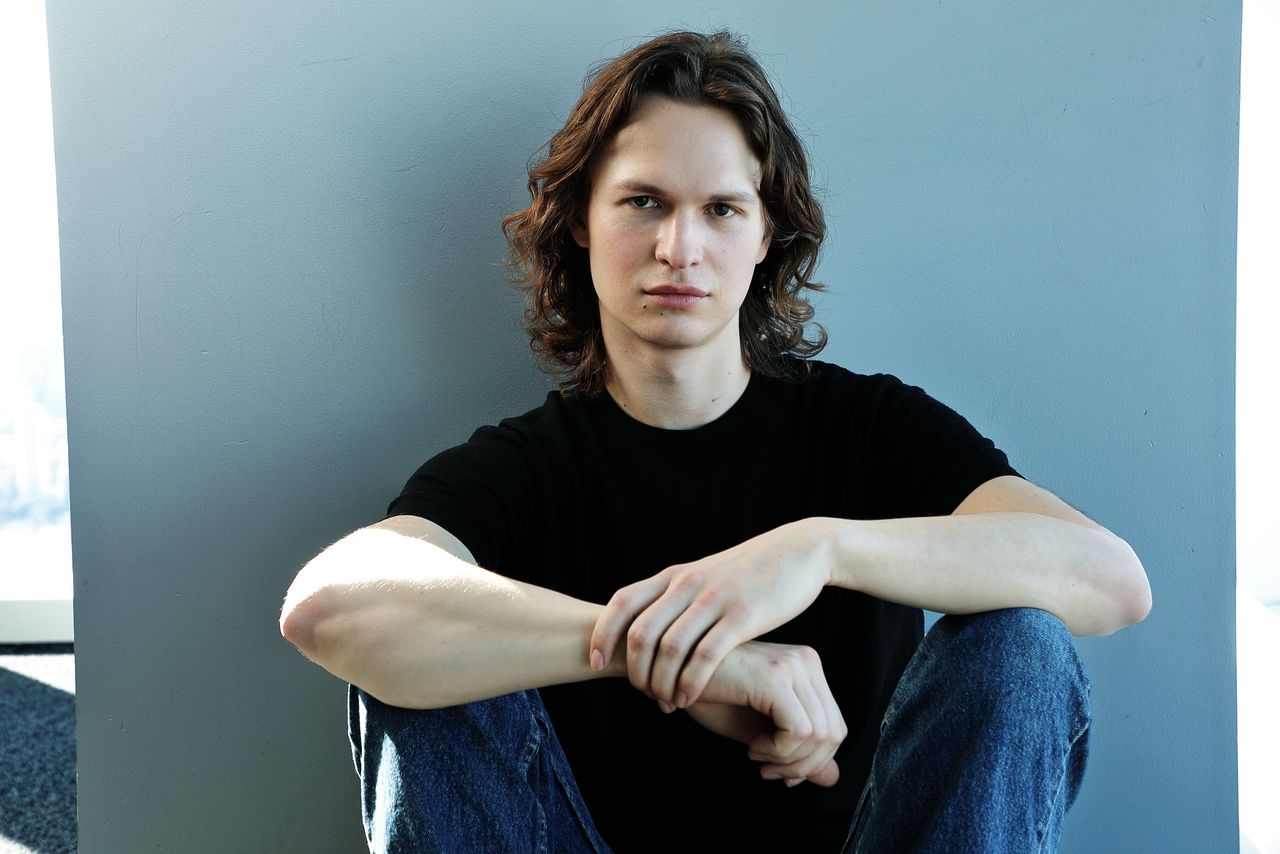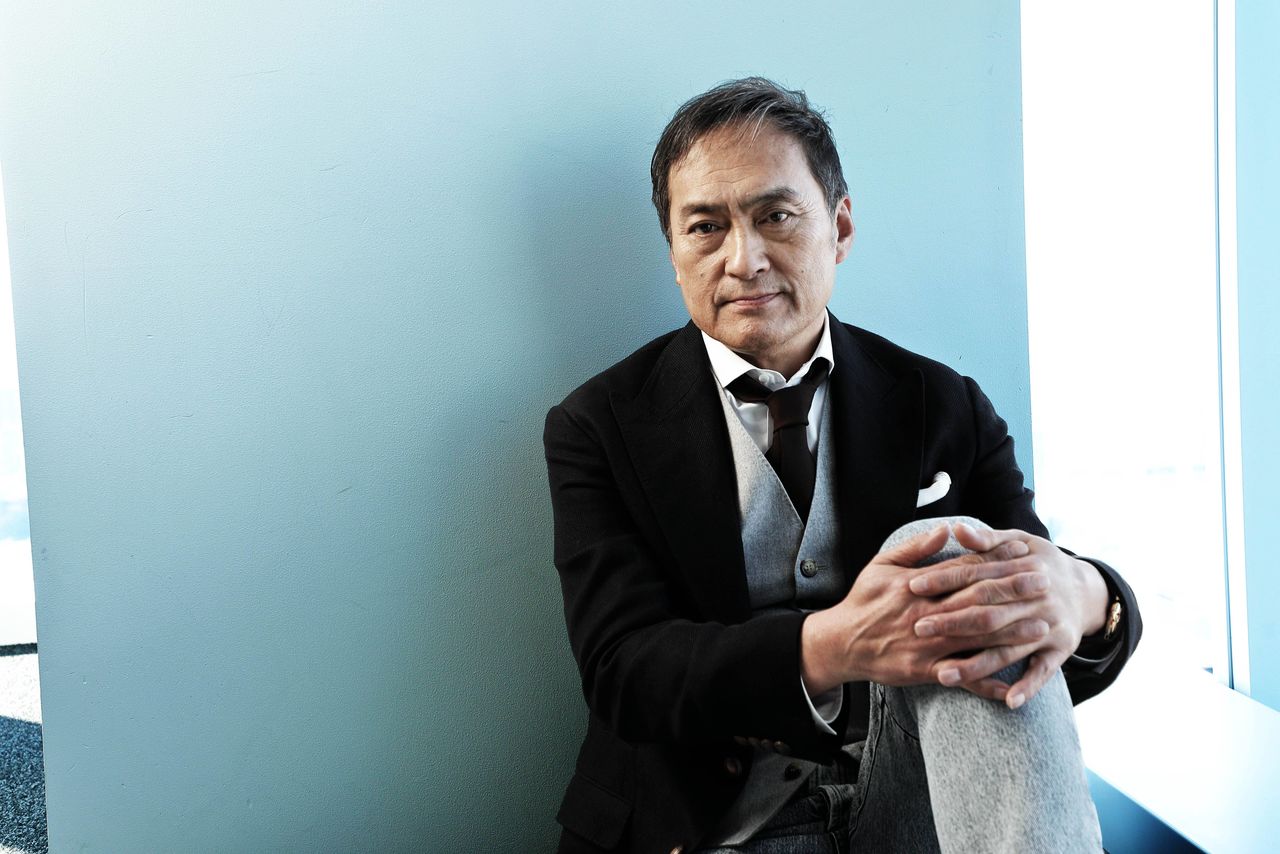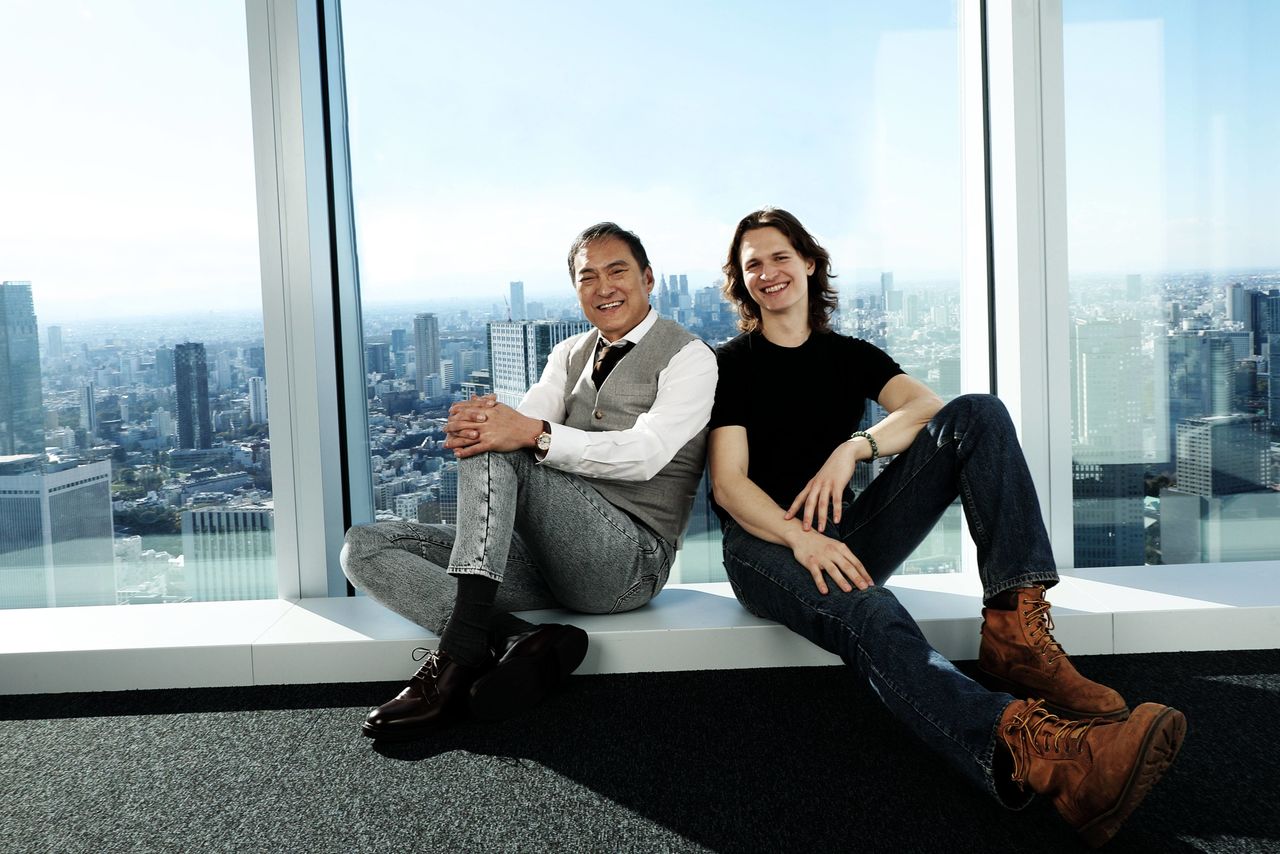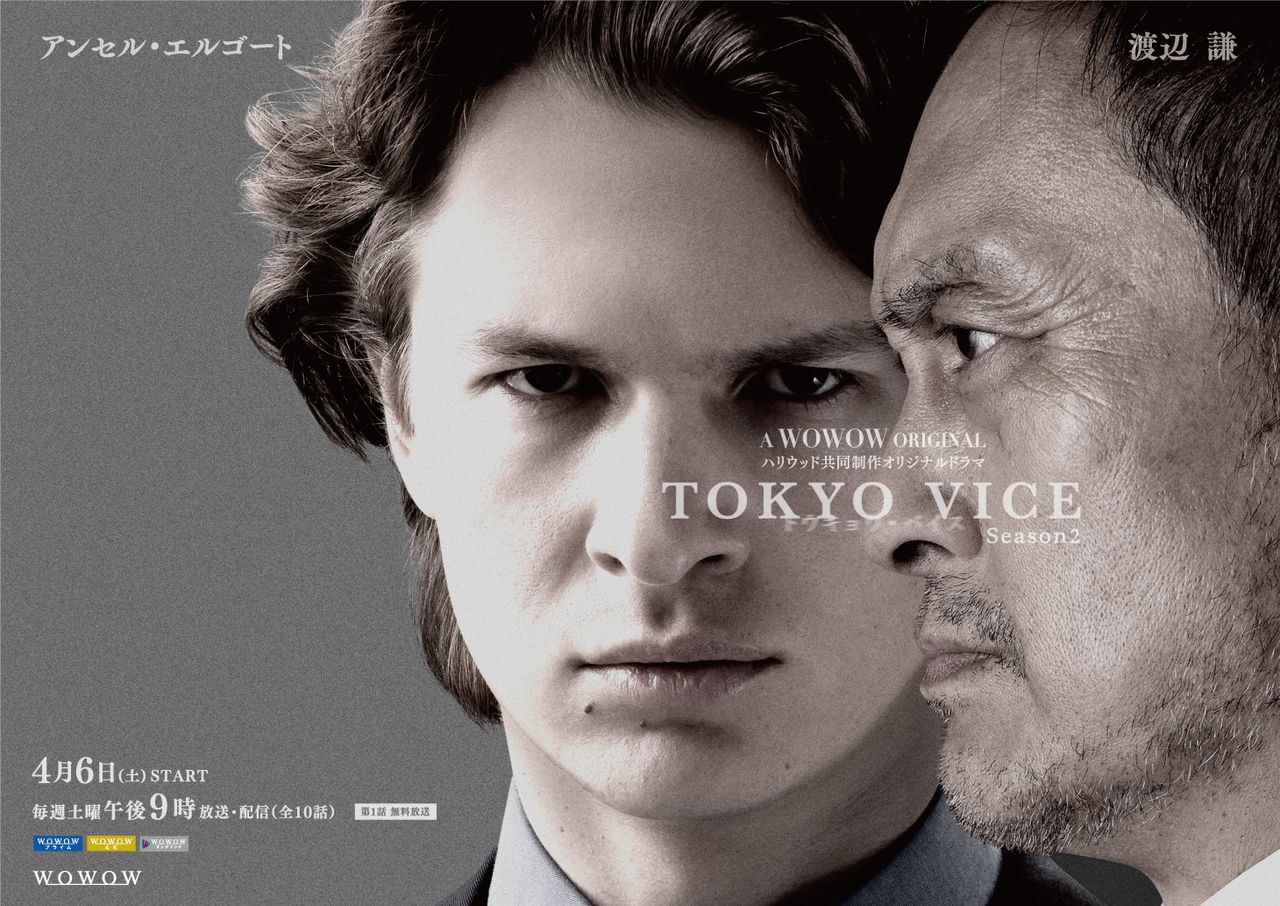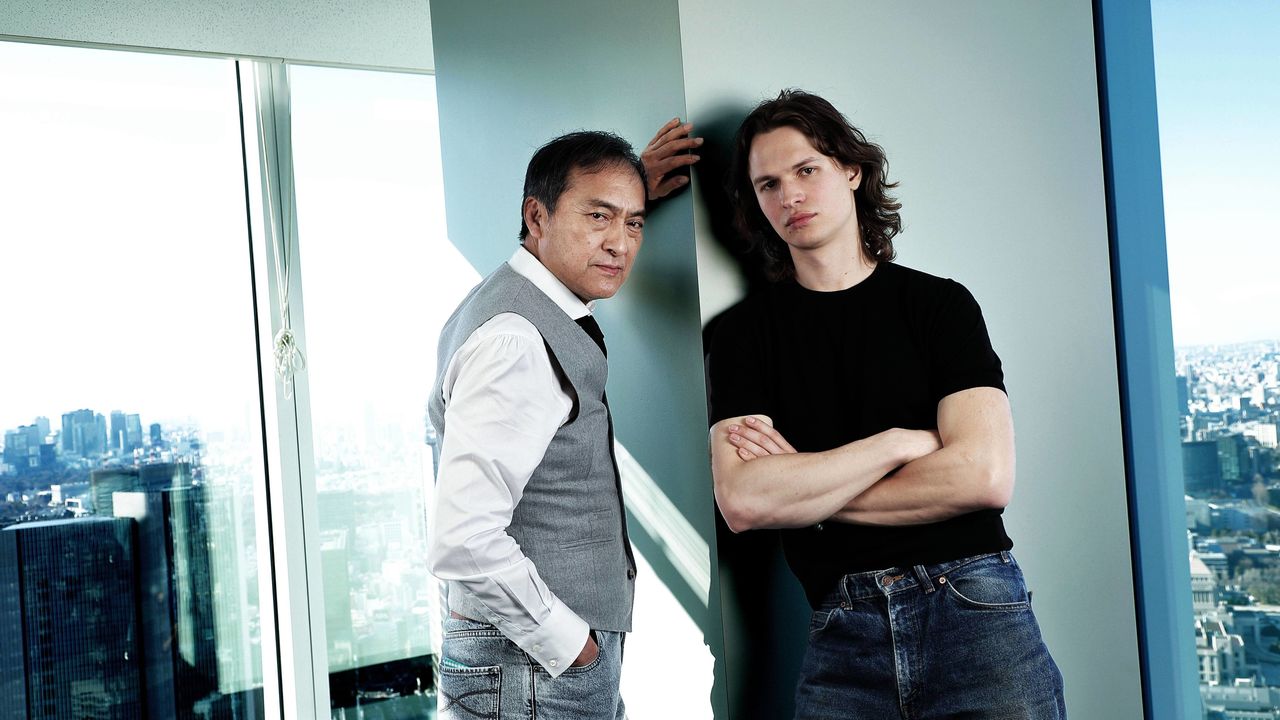
Jake and Katagiri: Behind the Scenes of “Tokyo Vice” with Stars Ansel Elgort and Watanabe Ken
Cinema- English
- 日本語
- 简体字
- 繁體字
- Français
- Español
- العربية
- Русский
Hard Streets of Tokyo
The crime drama Tokyo Vice has riveted viewers with its depiction of the underbelly of 1990s Tokyo. It stars Ansel Elgort as Jake, an American reporter covering the crime beat for one of Japan’s major dailies, and Watanabe Ken as Katagiri, a tenacious detective with the metropolitan police. The two strike up an unlikely partnership as they track down ruthless criminal elements. Based on the 2009 memoir of American journalist Jake Adelstein, the series launched in 2022 and is now in its second season.
Elgort and Watanabe enjoy a close offscreen rapport as well, with the pair switching between each other’s languages. We recently sat down with the duo to talk about their characters, 1990s Japan, and Elgort’s approach to studying Japanese.
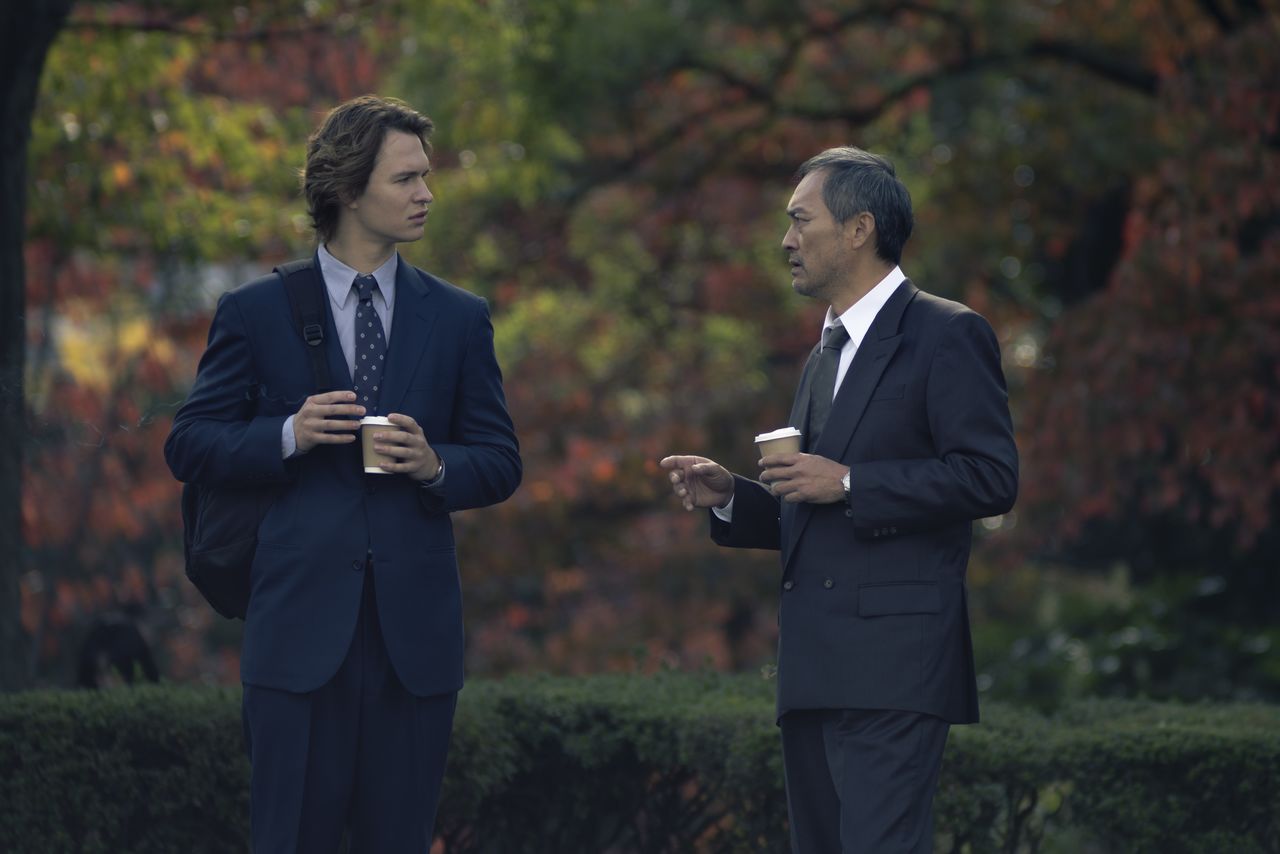
Ansel Elgort (left) and Watanabe Ken as Jake and Katagiri. (© James Lisle/WOWOW)
Long-Awaited New Season
The gripping end of season 1 of Tokyo Vice left Jake and Katagiri in a tight spot. With the fate of their characters up in the air, Elgort and Watanabe were excited for the much-anticipated start of the second season of the drama.
WATANABE KEN The new season picks up right from the same spot, with Jake having stepped back from covering the yakuza, and my character Katagiri working on a different assignment. The continuity of the script made it easy to slip back into our roles.
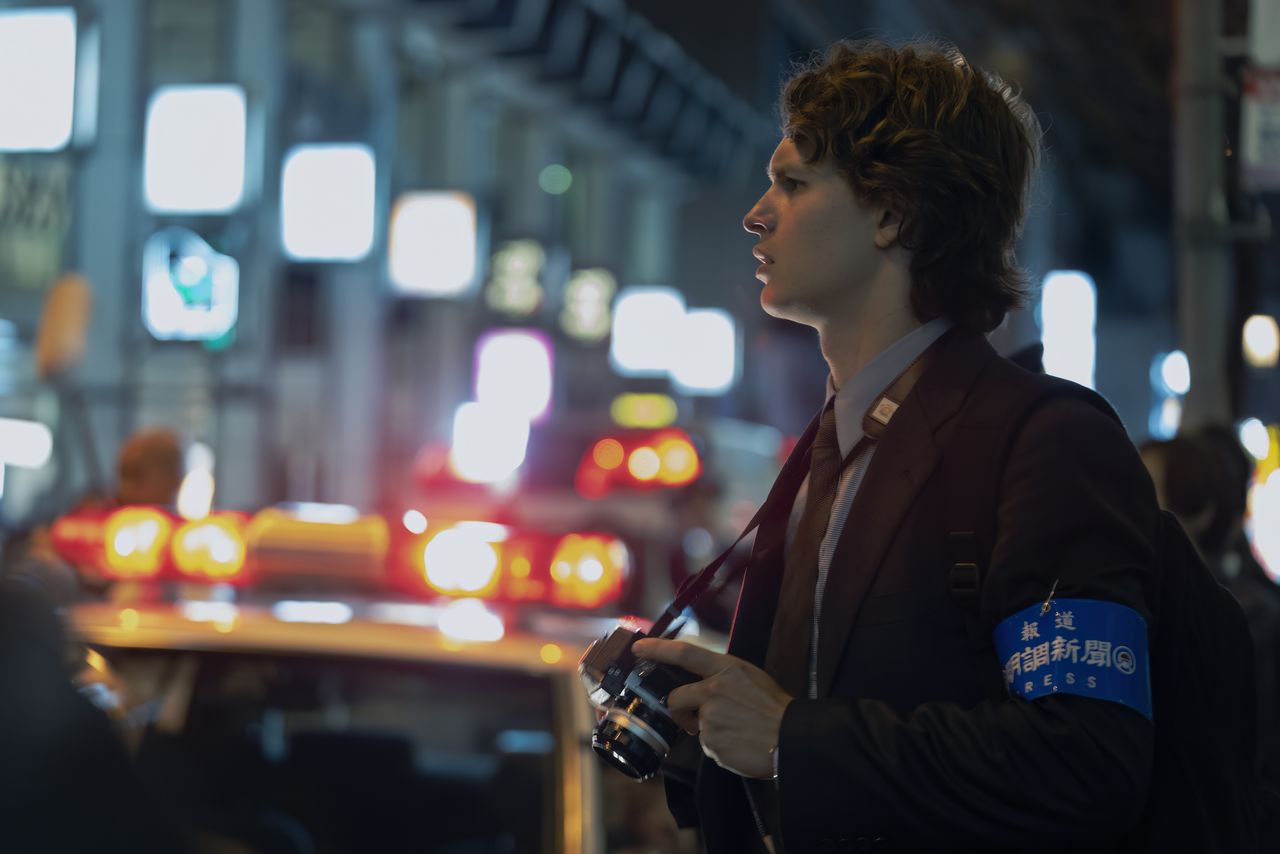
Jake starts a new assignment. (© James Lisle/WOWOW)
INTERVIEWER What was it like on set when filming in Tokyo?
WATANABE The first season was shot during the pandemic, which really forced us to come together as a team. But the production process returned to normal for the second season. We had regular rehearsals and were able to joke and laugh and have a good time.
ANSEL ELGORT Ken helped a lot with my Japanese studies. I went to him regularly for advice about my lines.
WATANABE The dialogue switches between English and Japanese, so we wanted to hammer down our lines early and have everything ready for when the cameras were rolling. We’d go over the script whenever we were together, and would even text each other with questions and suggestions.
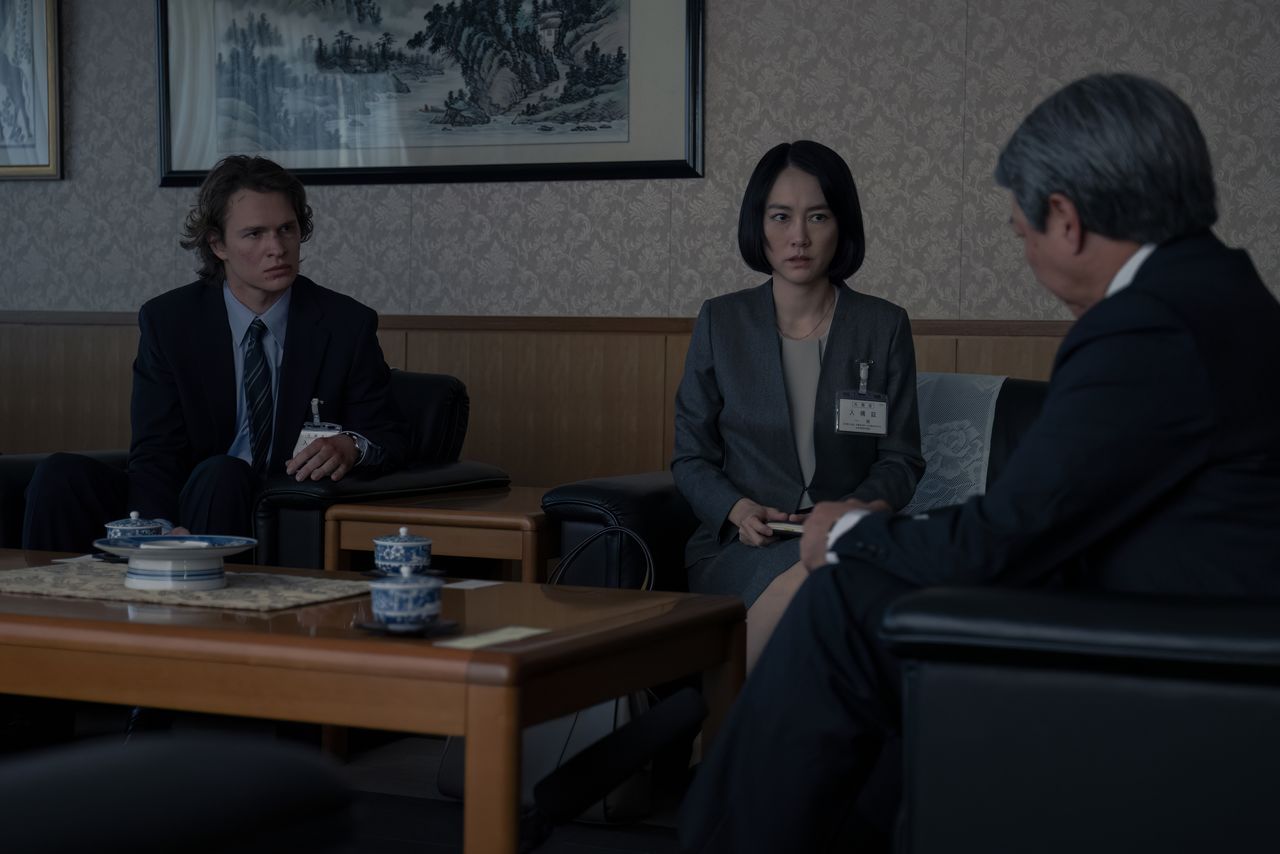
Jake sets alongside his supervisor, senior investigative reporter Maruyama Emi (center) played by Kikuchi Rinko. (© James Lisle/WOWOW)
INTERVIEWER Switching between the two languages, how did you decide which lines to say in English and which to deliver in Japanese?
WATANABE The show’s creator J.T. Rodgers had the dialogue translated so that in the script it was in both English and Japanese. There were certain lines he wanted to be in Japanese, but there was no hard and fast rule for which language to use. We tried to strike a balance by organizing dialogue into blocks of either English or Japanese. This avoided confusing viewers by switching back and forth too much, and also didn’t force them to read subtitles for long stretches. With Katagiri, I tended to stick with Japanese when he was opening up about his past or his feelings, as it felt more natural.
ELGORT Jake is fluent in Japanese, so I felt he would use it when discussing work and other important matters. There were certain scenes that Ken suggested worked better in English, but for the most part I stuck with Japanese.
WATANABE Ansel really gave it his all. If he insisted on doing a scene in Japanese, I’d get after him to make sure his pronunciation and delivery was spot on.
ELGORT The US studio asked that more of the dialogue be in English, but it didn’t feel right to me. I mean, it’s a story based in Japan, right? In the end, I think the dialogue was half and half English and Japanese.
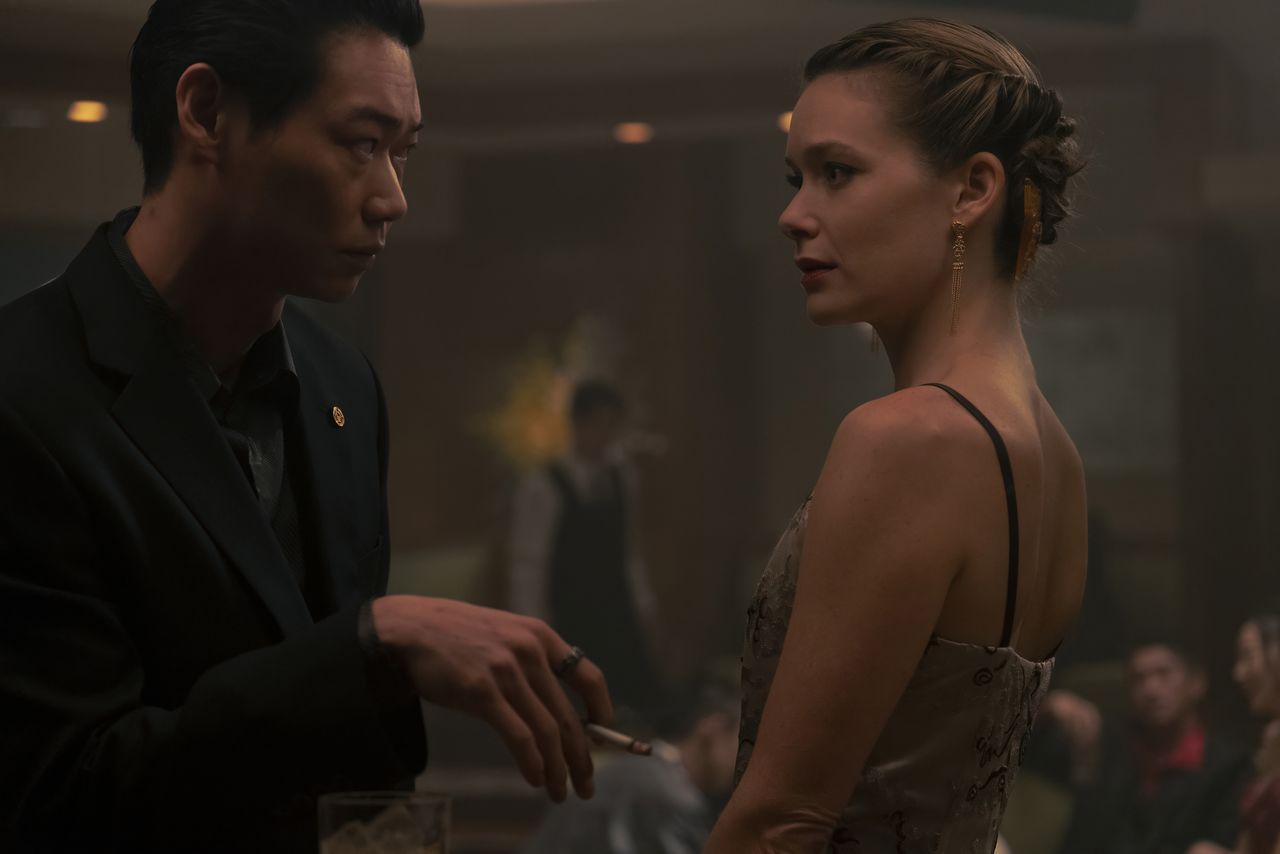
The gangster Satō (Kasamatsu Shō) and hostess Samantha (Rachel Keller) return for the second season of Tokyo Vice. (© James Lisle/WOWOW)
INTERVIEWER How did you study Japanese to prepare for the second season?
ELGORT I was in Japan for only a little bit between seasons, so I took lessons over Zoom. Let’s just say that my Japanese is a work in progress.
WATANABE We’re both in kind of the same boat language wise. People say Japanese is harder to master than English, but from my experience it’s the other way around. As far as the drama goes, there’s a mishmash of Japanese used. Each group—the police, the yakuza, and the reporters—have their own lingo that they use. Then there’s slang and formal language, not to mention the quirky counting system in Japanese.
Ansel studied hard. When there was a week-long break in filming, he’d travel around Japan and talk with people he met. He used Japanese on-set as well, and would ask staff words he didn’t understand or to explain if he couldn’t follow what they were saying.

Jake and Katagiri slowly develop a father-and-son-like relationship. (© James Lisle/WOWOW)
ELGORT Looking back, I wish I’d studied more heading into season one. I couldn’t speak at all. I’ve improved a lot since then and have even learned to read and write a fair bit of kanji.
I wanted to experience life in Japan, so even lived in a Japanese apartment for a time. The inside smelled like tatami matting, which I loved. I would kneel on the tatami and breath it in. It got cold in winter, but I’d go to a nearby public bathhouse to warm up. The apartment was above an izakaya, and I would go there to relax and talk with people. I soaked in as much of Japan and Japanese culture as I could.
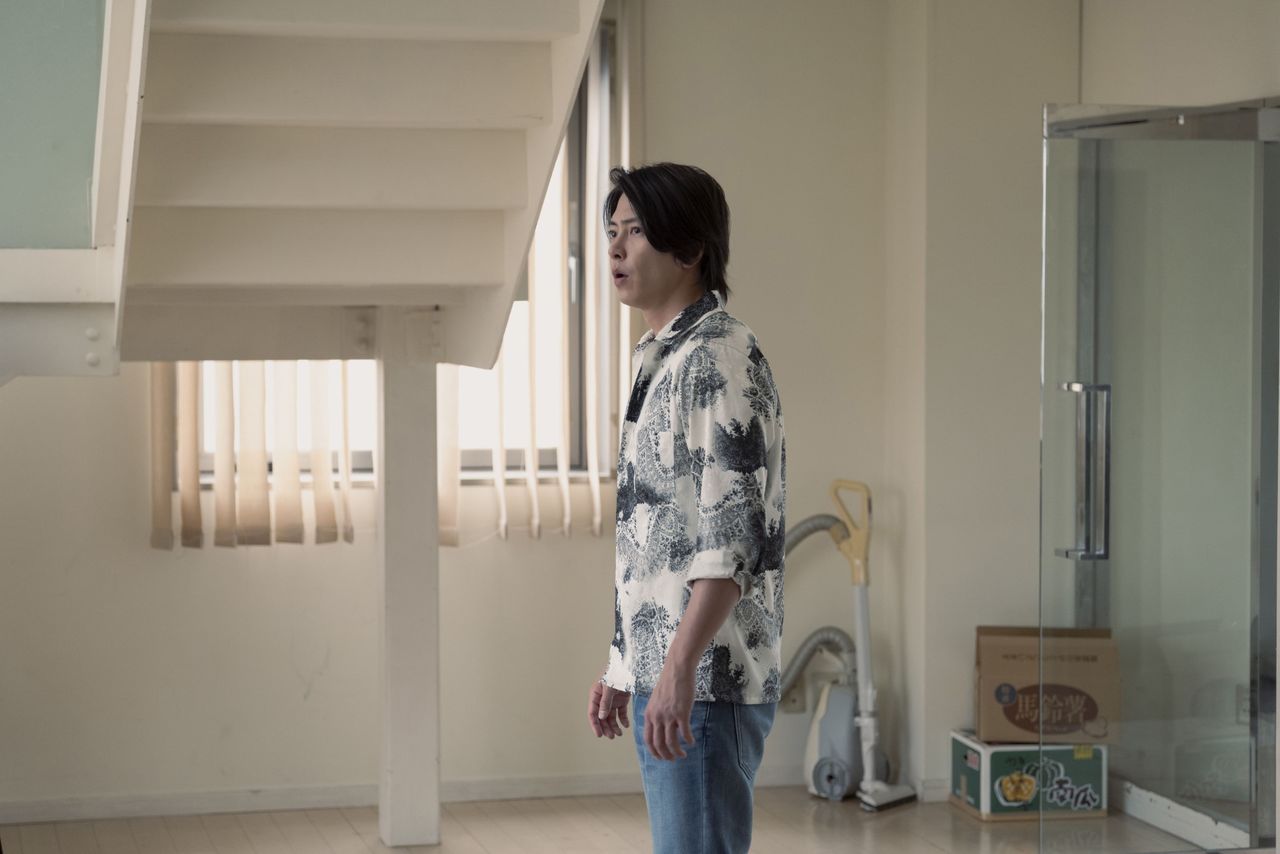
Akira (Yamashita Tomohisa), a recurring character in the series, works at a host club in Tokyo. (© James Lisle/WOWOW)
A Dark Tale of Tokyo
INTERVIEWER Tokyo Vice depicts a seedier side of Japan. You both serve as executive producers on the series. What was the image of Japan you were hoping to portray?
WATANABE The drama takes place in the late 1990s, which is a fascinating time as Japan was in a low period. The economy wasn’t doing great, and society and attitudes were still enmeshed in the past, which cast a pall over the country. I think you can trace a lot of today’s problems to this period. You could say it’s when Japan started to lose its direction.
Instead of taking a good hard look at itself, though, Japan plodded on as usual. In retrospect, we can recognize the political ineptness, the influence of antisocial elements, and trends that gave rise to dangerous cults. But at the time there was no real attempt to shine a light on these issues. American films and dramas don’t shy away from depicting controversial issues, such as the US opioid epidemic. But Japan prefers to tiptoe around social problems. Tokyo Vice is a fictional work, of course, but I think it represents a new approach for exploring the darker elements of society.
ELGORT The issues the series deals with aren’t unique to Japan, but the setting of Tokyo frames them in a distinct light. From the first time I visited the city, I knew the series would be great. More than just the setting, Tokyo is a central element of the story.
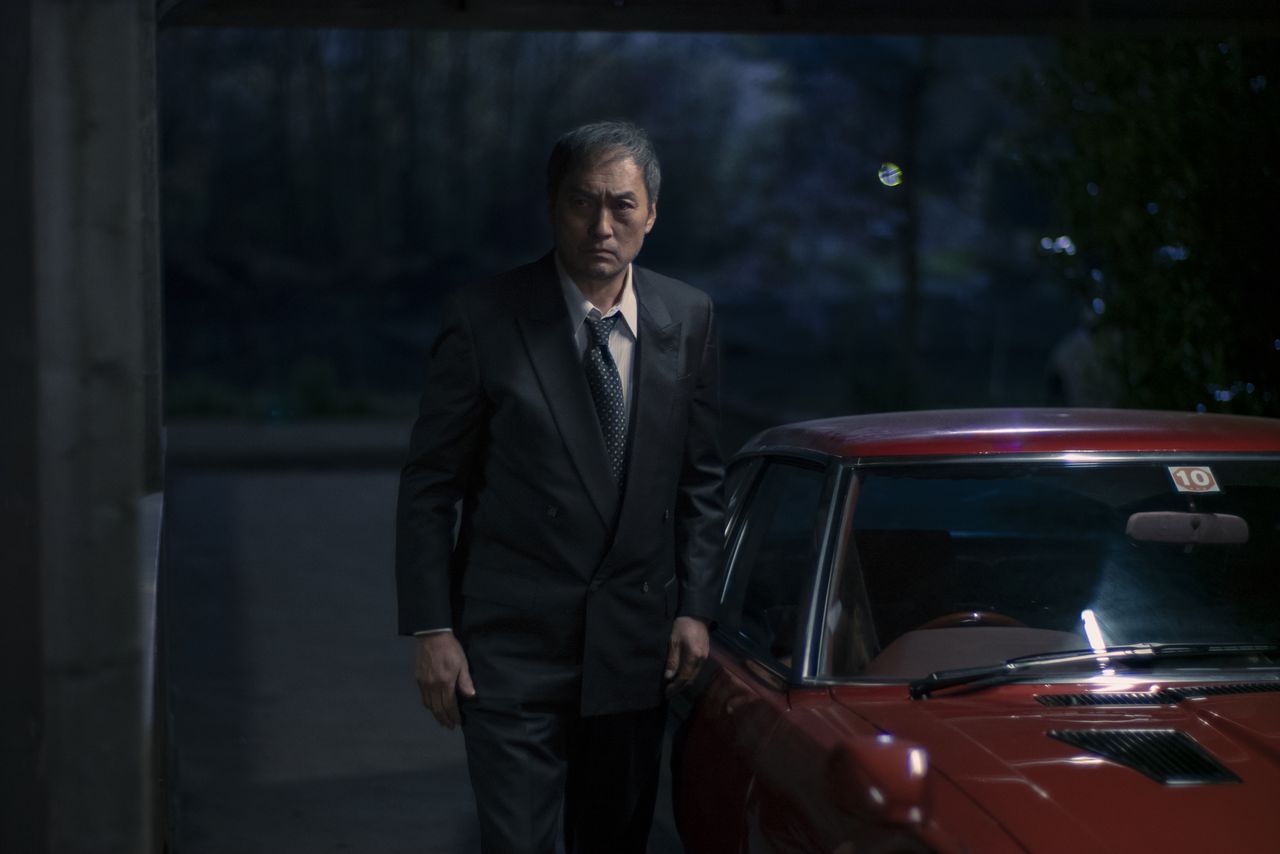
Katagiri (Watanabe) is a dedicated detective and family man. (© James Lisle/WOWOW)
Thin Line Between Good and Evil
Characters like Maruyama Emi, a senior reporter and Jake’s supervisor, and the young yakuza enforcer Satō return for the new season. They are joined by the likes of Hayama Naoki, a high-ranking gangster and Satō’s superior, and Nagata, a detective who partners with Katagiri, strengthening an already impressive lineup.
INTERVIEWER Jake and Katagiri often labor over what to do in situations, but still manage to get things wrong. How do your characters develop over the course of the series?
WATANABE What makes a story great is the human element. It’s about slowly revealing the characters’ personalities, showing them struggle, worry, and celebrate, that keeps people tuning in. A good script should draw you in and move you.
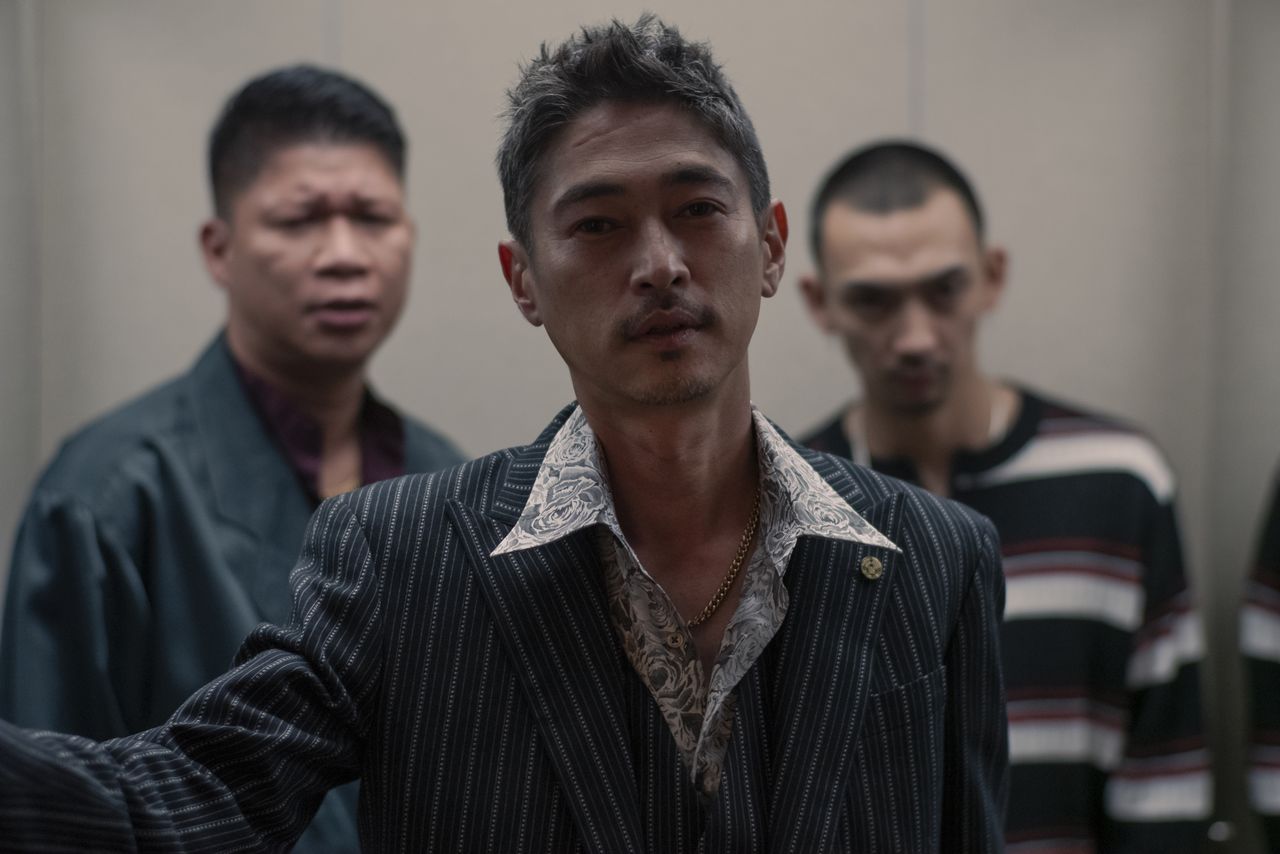
Hayama (Kubozuka Yōsuke) is a high-ranking gangster just released from prison. (© James Lisle/WOWOW)
ELGORT The characters try to keep their careers and their personal lives separate, but to no avail. Jake and Katagiri want to catch the bad guys, but they realize that going after yakuza also puts the people they care about at risk.
The series doesn’t portray morals as black and white. The gangsters do terrible things, but they aren’t all evil. Some are just doing what they need to in order to survive. Jake also comes to occupy a moral gray zone, enabling him to better navigate the harsh world that he inhabits. He’s a challenge character, but I’ve relished trying to portray his complexities.
WATANABE The characters traverse a society void of normal moral corollaries. We see that something that isn’t “right” isn’t necessarily “bad.” Katagiri has to come to terms with this moral ambiguity, and it’s this struggle that makes him such an endearing character.
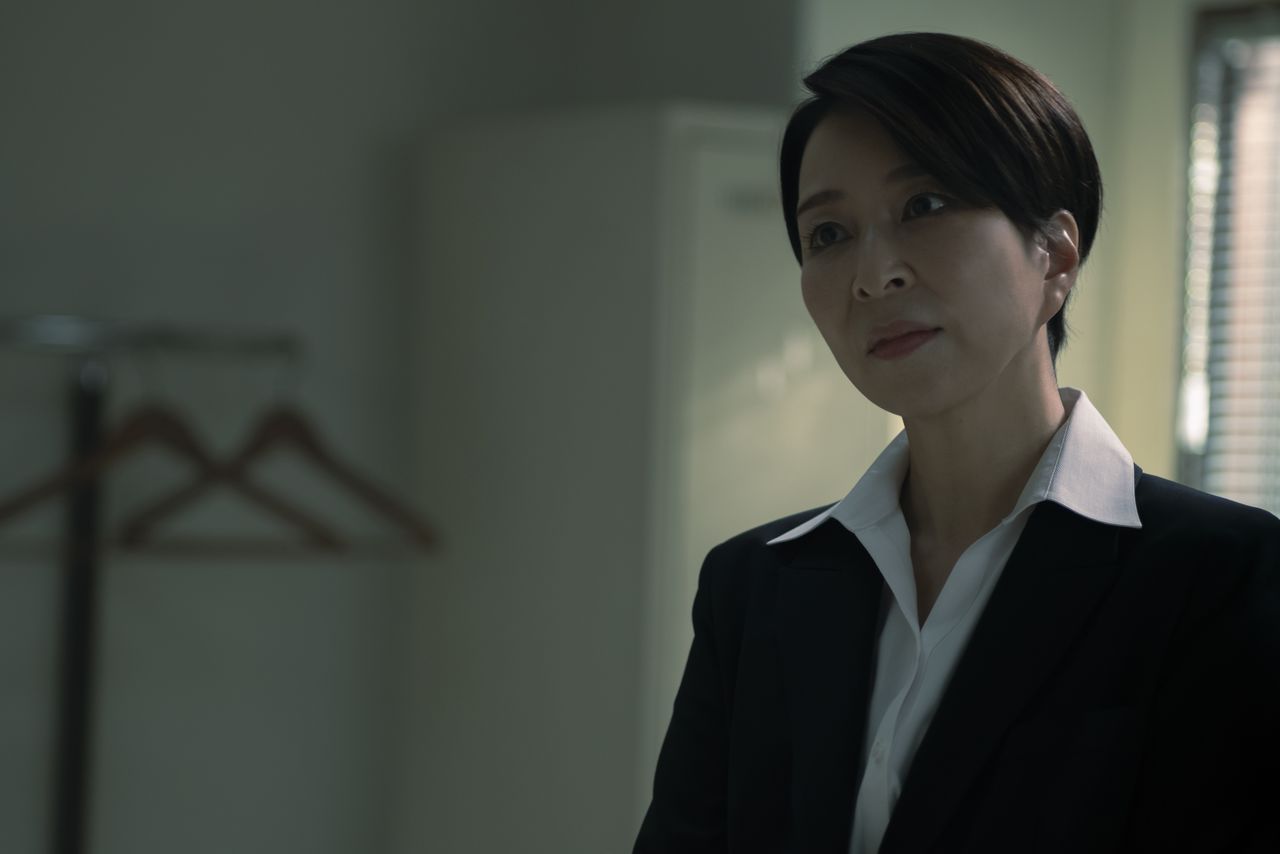
Nagata (Maya Miki) is a detective determined to rid the world of yakuza. (© James Lisle/WOWOW)
INTERVIEWER Are there any big surprises in season two?
WATANABE I don’t want to give anything away, but I’ll just say that even we got a few shocks when we read the script for the first time. I thought I had a pretty good feel for what was coming, but it went beyond even my expectations. I think viewers will find it to be quite an enjoyable rollercoaster ride.
ELGORT It’s never a boring moment with Jake. He really is a fun character to play. The script writers have done a great job.
WATANABE There were a few scenes that I wondered how we were going to shoot, but everything came out great. I think viewers will get hooked on the suspense and will want to binge-watch all the episodes.
(Originally published in Japanese. Interview and text by Inagaki Takatoshi. Ansel Elgort’s hair and makeup by Kin Sachi. Watanabe Ken’s hair and makeup by Kurata Masaki. Stylist, JB. Wardrobe by Brunello Cucinelli. Banner photo © Hanai Tomoko.)
Tokyo Vice, Season 2
- Creator: J.T. Rogers
- Official website (in Japanese): https://www.wowow.co.jp/drama/original/tokyovice2/
Based on the book Tokyo Vice: An American Reporter on the Police Beat in Japan by Jake Adelstein.

